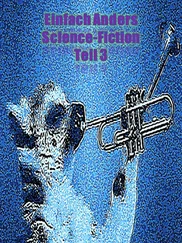Sarah Bolton - Famous Men of Science
Здесь есть возможность читать онлайн «Sarah Bolton - Famous Men of Science» — ознакомительный отрывок электронной книги совершенно бесплатно, а после прочтения отрывка купить полную версию. В некоторых случаях можно слушать аудио, скачать через торрент в формате fb2 и присутствует краткое содержание. ISBN: , Жанр: foreign_language, foreign_antique, foreign_prose, Биографии и Мемуары, на английском языке. Описание произведения, (предисловие) а так же отзывы посетителей доступны на портале библиотеки ЛибКат.
- Название:Famous Men of Science
- Автор:
- Жанр:
- Год:неизвестен
- ISBN:http://www.gutenberg.org/ebooks/35489
- Рейтинг книги:3 / 5. Голосов: 1
-
Избранное:Добавить в избранное
- Отзывы:
-
Ваша оценка:
- 60
- 1
- 2
- 3
- 4
- 5
Famous Men of Science: краткое содержание, описание и аннотация
Предлагаем к чтению аннотацию, описание, краткое содержание или предисловие (зависит от того, что написал сам автор книги «Famous Men of Science»). Если вы не нашли необходимую информацию о книге — напишите в комментариях, мы постараемся отыскать её.
Famous Men of Science — читать онлайн ознакомительный отрывок
Ниже представлен текст книги, разбитый по страницам. Система сохранения места последней прочитанной страницы, позволяет с удобством читать онлайн бесплатно книгу «Famous Men of Science», без необходимости каждый раз заново искать на чём Вы остановились. Поставьте закладку, и сможете в любой момент перейти на страницу, на которой закончили чтение.
Интервал:
Закладка:
Cuvier at once sent for his aged father, now nearly eighty years old, and his only brother, Frédéric, to make their home with him. The precious mother had died two years previously. She did not live to see the fame of her eldest son, but she must have been convinced of his future greatness, and been comforted by the prospect.
From the moment of entering upon his new work, Cuvier began to develop that wonderful collection in comparative anatomy which is now so celebrated. Nothing ever turned him from his purpose of making this the most extensive collection in the world; no sorrow, no legislative duties, no absence. No one who has visited Paris will ever forget the seventy-five acres in the Jardin des Plantes, with trees and flowers from all the world; with thirteen rooms filled with skeletons and anatomical preparations of all kinds; with eleven rooms in the gallery of anthropology containing every variety of the human species, in casts, mummies, and fossils; with the gallery of zoölogy containing over two thousand mammalia, belonging to five hundred species, as many reptiles, ten thousand birds, and over twenty-five hundred fishes; with immense geological, mineralogical, and botanical collections; all a marvel of industry and learning.
Cuvier now worked unceasingly. Sometimes his salary was in arrears, but he bore it cheerfully, as he wrote a friend: "You are not to suppose that Paris is so highly favored; for twelve months' pay are now due at the Jardin des Plantes, and all the national establishments for public instruction, in Paris as well as at Strasburg; and if we envy the elephants, it is not because they are better paid than we are, but because while living on credit, as we do, they are not aware of it, and consequently are insensible to the pain it gives. You know the saying about the French, that when they have no money they sing. We savants, who are not musicians, work at our sciences instead of singing, which comes to the same thing." He is a hero, indeed, who can breast poverty, and work and sing in the midst of hardship. When he published his "Annals of the Museum," he not only drew, but often engraved the plates himself, when he was unable, for lack of means, to hire it done.
The National Institution was founded in 1796, and Cuvier was associated with his friends De Lacépède and Daubenton, in the section of zoölogy, holding the position of Secretary of Natural Sciences till his death.
Four years later, in 1800, the first two volumes of his "Lessons in Comparative Anatomy" were published, and met with great success. The last three volumes were issued five years later.
In this year, 1800, Cuvier received another honor, that of the professorship of Natural Philosophy in the Collège de France. He was now but thirty-one. The following year, Napoleon I., who was usually wise in his selection of men, appointed him one of the six inspectors-general of education, to establish public schools in thirty towns of France.
Every moment now seemed occupied, and yet while the brain was busy perchance the heart was lonely. The father had died two years after the mother. The wife of his brother Frédéric had died, also, and the two brothers were left alone. At thirty-four, Cuvier decided to take into his heart and home the widow of M. Duvaucel, Fermier-Général, who had perished on the scaffold in 1794. The family had lost all their money in the French Revolution, and Madame Duvaucel had four large children to be supported; but Cuvier loved her for her rare mind and sweet disposition, and she blessed the remaining years of his life. An educated man needs companionship in mind; not simply a housekeeper.
Six years later one of her sons was assassinated in Portugal, during the retreat of the French army. Another, while collecting for the Museum of Paris, died in Madras, a young man of great talent and much beloved. A daughter, Mlle. Duvaucel, lived to be the comfort of Cuvier's declining years.
Happy in his home and absorbed with his work, Cuvier went forward to new labors and new honors. M. Mertrud had died, and, instead of being assistant at the Jardin des Plantes, Cuvier was now professor. In 1808 Napoleon made him counsellor for life of the Imperial University. The next year he organized new academies in the Italian States, which were now annexed to France. In 1811 he was sent on a similar mission to Holland and the Hanseatic towns, and was made a chevalier, which rank was assured to his heirs. Though he disliked to be absent from his family, he went where duty called him, and wrote back fond letters to his wife.
"My Tender Friend, – The weather, the road, the horses, and the postilions have proved so excellent that we have reached Porte Sainte Mayence before six o'clock; and I have bitterly regretted the two or three good hours that I might still have passed with thee, without in the least delaying my journey. At least believe that I have passed them in my imagination, and that the remembrance of thy caresses and tender friendship will form the happiness of my whole way." After some words to the children, he added, "We are quite well, my good friend; we have crossed an agreeable country; and we are in a tolerable inn. Our carriage appears to be quite able to bear the journey; thus, up to this moment, all goes well. Pray to God that this may last; thou art so good that he cannot refuse thee. Adieu. A thousand tender kisses. G. C."
This year, 1811, appeared one of his most important works – that on "Fossil Remains," which wrought a revolution in the study of geology. By comparing living and fossil animals, Cuvier showed that huger creatures had lived on the earth and become extinct before the creation of man. In the first epoch he found great reptiles, like the Ichthyosaurus, thirty feet long, and the Megalosaurus, seventy feet long. In the second epoch, he found the Paleotherium; in the third, the Mammoth, Mastodon, and gigantic sloth; and in the fourth epoch, man. So closely had he studied the relations of the organs of animals, that he could reconstruct the extinct fossil from a single bone. He had already prepared, at the request of Napoleon, a brilliant "Report on the Progress of Natural Sciences from the year 1789."
In 1813, though a Protestant, he was sent to Rome to organize a university, and was made Master of Requests in the Council of State. Napoleon also appointed him Commissaire Impérial Extraordinaire, and sent him to endeavor to raise the people on the left bank of the Rhine in favor of France, against the invading troops then marching upon them. But Cuvier was stopped at Nancy by the entrance of the allied armies, and obliged to return.
He was now famous, and his company and counsel were sought by the learned and the great. And he was still a comparatively young man, forty-four.
But life had great sorrows in the midst of this prosperity. His first child, a son, had died a few weeks after his birth. His daughter Annie had died in 1812, at the age of four, and now in 1813, while he was absent in Rome, his only son, Georges, a boy of seven, had been taken from him. The blow was a terrible one. For many years he never saw a boy near that age, without being deeply affected. He would stop on the streets to watch a group of boys playing, and then go on sadly, thinking of the one he had buried.
In 1814, Cuvier was raised to the rank of Counsellor of State, and Chancellor of the University. When Napoleon was asked why he had appointed a savant to a political position, he replied, "that he may be able to rest himself sometimes," knowing that to a man like Cuvier change was the most helpful rest. When Napoleon abdicated his throne, and Louis XVIII. came to power, Cuvier was retained in office, for his rare administrative ability, and upright life.
Three years later, the first edition of his "Animal Kingdom" appeared, and is now to be seen in the British Museum, in seventeen volumes. This work has served as the basis for subsequent zoölogical classification. Cuvier studied minutely the interior structure of animals, and based his classification on this, instead of exterior resemblance.
Читать дальшеИнтервал:
Закладка:
Похожие книги на «Famous Men of Science»
Представляем Вашему вниманию похожие книги на «Famous Men of Science» списком для выбора. Мы отобрали схожую по названию и смыслу литературу в надежде предоставить читателям больше вариантов отыскать новые, интересные, ещё непрочитанные произведения.
Обсуждение, отзывы о книге «Famous Men of Science» и просто собственные мнения читателей. Оставьте ваши комментарии, напишите, что Вы думаете о произведении, его смысле или главных героях. Укажите что конкретно понравилось, а что нет, и почему Вы так считаете.












